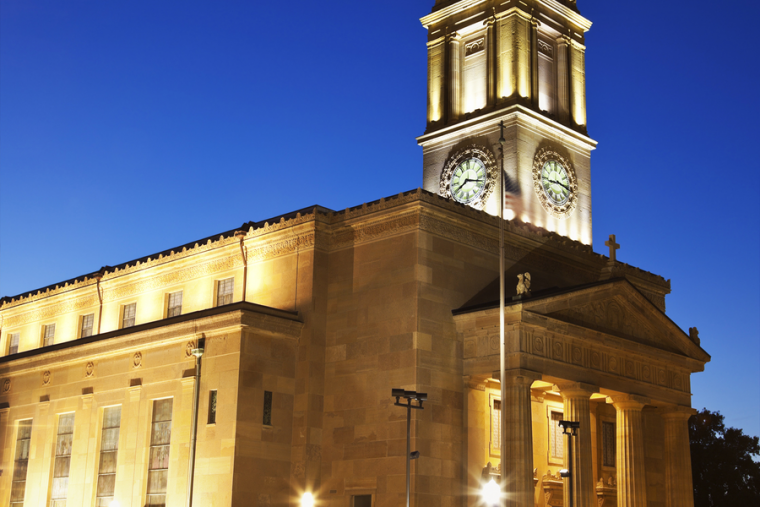The Diocese of Springfield in Illinois is restoring the Sunday obligation for most Catholics on April 11, Divine Mercy Sunday.
“The Easter season is a very fitting time to renew our commitment to worship Our Lord every weekend in commemoration of His Resurrection and to pray for God’s Divine Mercy to heal the sick and bring an end to this pandemic,” Bishop Thomas Paprocki of Springfield stated in an announcement on Monday.
Bishop Paprocki announced the "modified" obligation to attend Mass on Sundays and Holy Days of Obligation beginning on April 11, with some exemptions.
Those dispensed from the obligation to attend Sunday Mass include those with symptoms of COVID-19 or who have “good reason” to believe they are COVID-positive and asymptomatic. Also, the elderly who are age 65 and over are dispensed from the obligation, as well as caretakers of the sick and the homebound, pregnant women, those turned away from a church that is “at safe-distancing capacity,” and those considered at risk of COVID-19 by the U.S. Centers for Disease Control (CDC).
Churches will continue to take safety precautions, Bishop Paprocki said, including mask-wearing, and social-distancing and sanitary measures.
Bishop Paprocki emphasized that people who have symptoms of COVID-19, or who believe they have the virus without symptoms, “are morally obliged” to avoid attending Mass in-person so as not to threaten the health of others.
“It is essential to be physically present celebrating with the community of faith and receiving the real presence of our Lord into our hearts in the Eucharist,” Bishop Paprocki explained his decision to restore a modified Sunday obligation.
The Springfield diocese joins several other U.S. dioceses in having restored a modified Sunday obligation. The diocese of Sioux Falls was the first to reinstate the obligation with health exceptions, on Aug. 17, 2020. Several dioceses in Wisconsin followed suit, although two of those dioceses—Green Bay and La Crosse—eventually restored the dispensation from attending Mass due to a local spread of COVID-19.
The Archdiocese of Detroit reinstated the Sunday obligation earlier in March, as well as the Diocese of Tyler, Texas.
Bishop Paprocki on Monday cited his statement from May, 2020, when state restrictions on attending Mass were lifted.
“[O]ur faith is not a ‘virtual’ faith; our Lord Himself became incarnate and gave us the sacraments, with their physical signs and hidden but real effects,” he said on Monday. “Our faith is a tangible, physical, and communal reality. We simply cannot properly practice our faith apart from one another and separated from the physical realities of the sacraments.”
In an interview with CNA in September, 2020, Paprocki argued that months-long lockdowns by states as a response to the pandemic should be considered “extraordinary” means of saving lives, and not “ordinary” means; thus, according to Catholic ethics, they would not be morally obligatory and should not be coerced by the state.
“The impact that it's been having on people being able to go to church, receive Communion, go to their jobs, go to school, with all that being basically shut down for a period of time, again, it just struck me as extraordinary, that this had never happened in my lifetime, and probably in the lifetime of most people who are alive today, and so the word extraordinary kept coming back to me,” the bishop explained.

